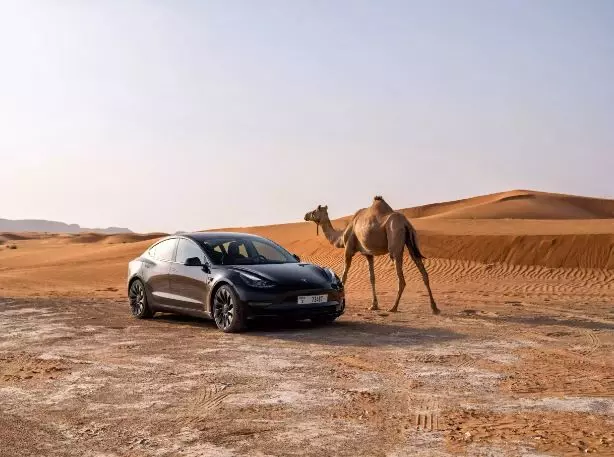The Chinese Tesla rival, why Elon Musk should be worried?
The Seal, a mid-sized electric sedan produced by the prominent Chinese EV company BYD, which enjoys the backing of Warren Buffett's Berkshire Hathaway, is emerging as a formidable contender to the Tesla Model 3
image for illustrative purpose

The Seal, a mid-sized electric sedan produced by the prominent Chinese EV company BYD, which enjoys the backing of Warren Buffett's Berkshire Hathaway, is emerging as a formidable contender to the Tesla Model 3. Analysts from UBS recently conducted a thorough examination to gauge just how competitive the Seal is in comparison to Elon Musk's widely popular model.
Ultimately, after dissecting the Seal, which the analysts consider "a noteworthy example of the technological advancements and cost efficiencies seen in Chinese EV models," UBS reiterated its conviction that Chinese automotive companies are poised to establish a lasting presence and assert dominance in the global electric vehicle market. This assessment was communicated in a note to their clients.
The analysts took note of several distinguishing features of the Seal, such as its spacious interior, 5G connectivity, and a rotating central cockpit screen. They also highlighted its deliberate choice of slower acceleration, lower top speed, and reduced charging speed as advantages over Tesla's popular offering.
Notably, unlike Tesla, BYD appears to be steering clear of autonomous driving technology, opting instead for a standard Level 2 advanced driver assistance system. Moreover, the company has chosen to outsource this technology rather than develop it in-house.
This strategic approach aligns with the broader trend among Chinese automakers. Companies like Geely, Li Auto, and XPeng are well-versed in technology, possess long-established advantages within the EV battery supply chain, and can efficiently produce EVs at greater scale and lower costs.
UBS analysts acknowledged that incumbent automakers, including BYD, have an edge over younger Chinese firms but noted that progress is being made across the board.
This growth extends beyond China, with Chinese auto firms expected to outpace foreign counterparts this year, marking a significant shift. European markets are also witnessing the influx of Chinese exports, and Chinese companies played a dominant role at the recent Munich auto show, which has traditionally been influenced by German automakers.
As the automotive industry transitions into the era of electric vehicles, UBS analysts observed that there is now little price disparity between foreign and Chinese brands. They anticipate that Chinese brands will continue to gain market share from foreign competitors, driven by the faster development cycle of Chinese EVs.
Experts suggest that Chinese automakers may also find success in the US market in the near future. They point out that Chinese manufacturers currently enjoy systematic cost advantages in the EV sector compared to US and European incumbents. Additionally, they offer a wider range of product options than Tesla, encompassing various market segments, especially the mass-market segment.

